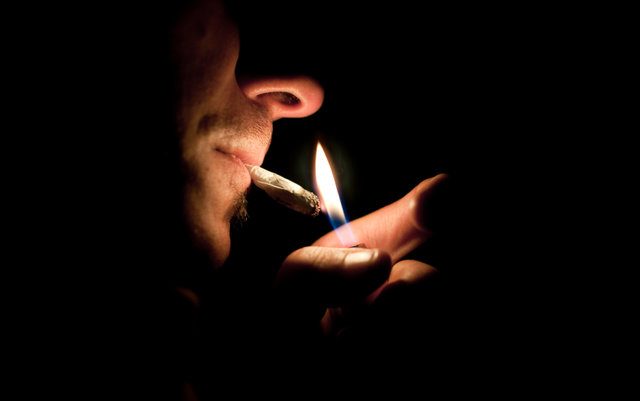One of my themes as of late has been taking on specific prohibitionist talking points, the ones they still rely on in the hopes of delaying marijuana law reform measures across the country.
As time goes on, the number of talking points has dwindled. And some have been repurposed in order to take advantage of new fears rising among the public. One of these is the “we already have enough legal drugs that are hurting people, so how can legalizing another drug [marijuana] help the problem?” angle.
Objectively, this talking point does a few things for the prohibitionist using it. It admits that there are already dangerous drugs on the market, partially co-opting a point that those who support legalization often make. Of course, many of these prohibitionists would never admit that those legal substances are more harmful than marijuana, but it gives the illusion that they are giving some ground, which helps set up the rest of the talking point.
By constantly referring to marijuana as legalizing “another drug”, prohibitionists hope to link marijuana in your mind with the other substances they just admitted were dangerous. As in, we have these dangerous things that are legal, how can legalizing another dangerous thing make those things less dangerous or help the situation in any way?
On a more specific level, the situation that prohibitionists often point to as the one that cannabis will do nothing to help and could make worse is the opioid crisis.
“When we are dealing with opioids as the single biggest health crisis this state has ever had, you are going to tell me legalizing more drugs is the answer?” New Hampshire Governor Chris Sununu said last fall. “Absolutely not.”
The irony of a pain reliever like cannabis being illegal for decades and the part that this played in driving people to get hooked on the legal alternative of opioid painkillers is likely lost on most who use this line of reasoning as a way to call for marijuana’s continued prohibition.
And although evidence continues to mount that shows marijuana is actually quite helpful when it comes to battling the opioid epidemic, that’s not why marijuana should be legal – it’s just one of many positive side effects.
Legalizing marijuana is not “legalizing another drug”. It’s righting a wrong done decades ago to a plant that has helped an uncountable number of people through the ages. It is no longer criminalizing people who are not infringing on the rights of anyone else.
For that reason, even if evidence could be produced showing that cannabis greatly exacerbated the opioid problem, I would still call for its legalization. But such evidence does not exist. As I said, all evidence so far points to the contrary being true.
In the end, we must remember that lawmakers say dumb things all the time. They’ve been told by so many that their opinions carry great weight and that their policy prescriptions to deal with the ills of the little folks are trailblazing, innovative and philosophically sound. But they are just people who chose politics as a profession, as opposed to something like medicine or teaching. Winning an election gives them no magical powers.







One way to respond is to tell them we don’t want to legalize marijuana, we want to carefully deschedule cannabis. We may get them to join in agreement.
There is a way to carefully deschedule cannabis, yet leave marijuana in Schedule 1 for a separate consideration of its adulterated medical benefits. It will clear up the confusion between marijuana and cannabis, by specifying how marijuana is actually derived from cannabis. Once cannabis is descheduled, then people engaged in cannabis commerce can begin using bank accounts. It will also convert the 0.3% THC limit for determining the prohibition of certain cannabis plants, to a 0.3% THC limit for determining the prohibition of the intake of THC from any cannabis plant, by certain people – a more effective prohibition to enforce. Importantly, it will uphold our Constitution.
Tell them that they can propose to their members of Congress, who are trying to resolve the problems of marijuana law, to invoke Section 5 of the 14th Amendment to enact this Necessary and Proper reform that rectifies the existing malformed federal definition of Schedule 1 marijuana, so that the rights, privileges and immunities of citizens to grow and use cannabis plants will be restored and protected, like the 9th, 10th, and Section 1 of the 14th Amendment intended, before “marihuana” was invented in an oxymoronic, obscure definition. Importantly, this reform will uphold our Constitution:
The term “marijuana” means all parts of the smoke produced by the combustion of the plant Cannabis sativa L. which is, as are the viable seeds of such plant, prohibited to be grown by or sold by any publicly traded corporation or subsidiary company, and such smoke is prohibited to be inhaled by any child or by any person bearing any firearm, as is the intake of any part or any product of such plant containing more than 0.3% THC by weight unless prescribed to such child by an authorized medical practitioner.